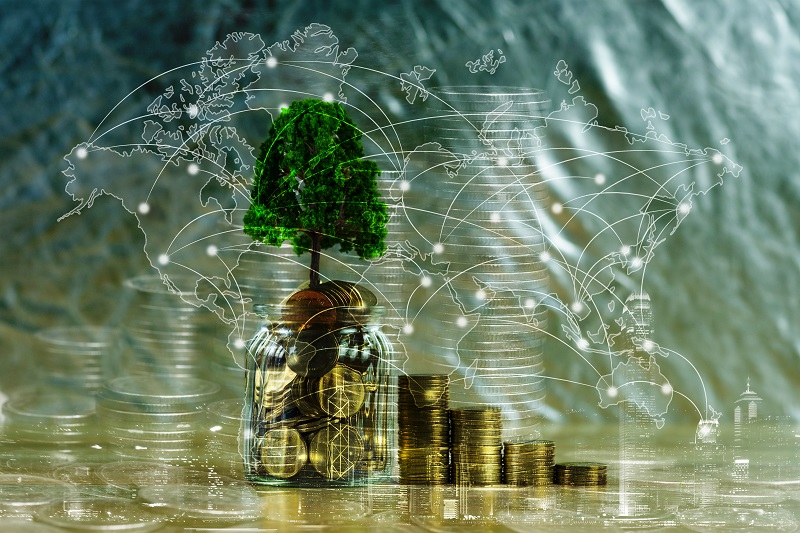Sustainability: The Big Issue
The planet’s resources are finite and being used up at a rapid rate which is not sustainable and unfair on future generations. Sustainability risks are growing and getting more attention from investors, businesses, and financial institutions. Increasingly there is awareness the problem is not in the future but here and now.
The key sustainability threats can be grouped into three main areas - Climate Change, Inequality and Biopersity.
But on a more day-to-day level they include things like risks tied to perceptions of over-consumption of scarce commodities, reputational risks linked to investments in projects with potentially damaging environmental impacts, and social responsibility risks linked to involvement in businesses seen as harmful to communities.
Sustainability issue will ultimately affect everyone in some manner and with it the economy and performance of companies which is why investors need to be more aware of the issue.
1. Climate Change
Sustainability is defined as development that meets the needs of the present without compromising the ability of future generations to meet their own needs.
The capital markets can drive this move toward sustainability through investment but need a more focused approach.
To provide guidance there are 17 Sustainable Development Goals (SDGs) agreed in 2015 by 193 governments around the world to outline a roadmap for what is needed to be delivered by 2030.
More and more companies and governments are doing their best to align with these goals, and the challenge for the finance industry is how to invest to achieve them.
It is estimated that five to seven trillion dollars per year is needed to move toward implementing all these goals, but that money is out there as investors understand it can be used to position a portfolio to favour the winners of tomorrow.
The planet’s resources are finite and being used up at a rapid rate which is not sustainable and unfair on future generations. But the risks are getting more attention from executives, investors, lenders and regulators.
Climate is No. 1 Sustainability Risk
Climate change is set to have a major impact on the prospects for companies and entire economies.
Under the Paris Agreement of 2015, 197 countries agreed a target to limit the global temperature rise and cut the emissions of greenhouse gases.
The science behind this move indicates major changes in the climate if global temperatures were held to a 1.5°C rise and much more severe weather implications if the rise is allowed to go to 2.0°C.
The impacts of climate change will feed directly through to company performance and valuations more and more over the next three to five years.
The three main climate-related risks for investors are Physical, in how changing weather may impact supply chains and infrastructure, Transitional, as in the changes required to cut emissions such as ending fossil fuel use, and Financing risks, where businesses not seen as climate friendly loose access to funding.
There is some good news in that more companies and government have moved to set net zero emission targets in line with the Paris Agreement.
2. Inequality
Social issues have been a concern for investors since the days of the anti-Apartheid campaigns of the 1970s and ‘80s but have recently taken on a new impetus.
The Black Lives Matter campaign, the impact of Covid-19 and heritage issues like the Juukan Gorge destruction have all raised awareness among investors about these issues.
How companies treat employees, customers, members of their supply chains and the community in which they operate can all effect reputation and investment.
Adoption of new technologies is also a growing issue. The increased use of automation technology, for example, could change the jobs of up to 50 percent of the workforce and severely impact firms relying heavily on low-skilled labour.
These issues can all impact corporate performance and future business earnings.
3. Biopersity
The loss and pollution of animal habitats on land and at sea is posing a real threat to the human life support system.
Even if climate change is fixed, the way economies are run means the planet's resources are being rapidly used up and they are finite.
Around 84 percent of freshwater species have already been lost, and by 2050 there will be more plastic than fish in the world's oceans if nothing is done
Other threats include the emergence of diseases like Covid 19, Ebola and SARS, which are all viruses that have jumped to humans from animals after their habitats were destroyed.
The loss of natural pollinators like bees is another key risk as 75 percent of our food crops depend on pollination.
However, moves are afoot to make tackling biopersity loss as big an issue as climate change and develop a new framework to reduce losses though there is still much disagreement on the targets.
Sustainability will impact us all
In order to achieve the sustainability of the planet it is important that each generation be more responsible than the one that went before it and take whatever steps can be taken to achieve this goal.
The sustainability issue will ultimately affect everyone in some manner and with it the economy and performance of companies which is why investors need to be more aware of the issue.
According to scientists, time is running out to make the big changes required to tackle many which is why there is such a focus on international gatherings like the COP26.
The pressure is on for everyone to be more ambitious in their efforts to tackle climate change, biopersity destruction and long-standing social issues.
While governments are moving slowly, it’s important to remember we can make a difference. Choices influence outcomes, and this includes how we invest.

 Overview
Overview













